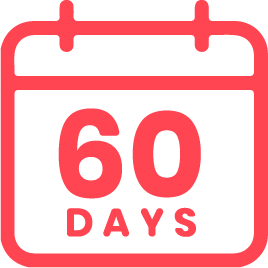why shop manta sleep
Can't Sleep? Time to Start a Sleep Diary
If there’s one thing that excites us, it’s a high-quality night of shut-eye.
We truly believe that when you upgrade your sleep, you automatically upgrade your entire life, which is why we can’t wait to talk about sleep diaries with you.
If there’s a proven way to sleep better, we want to share it, and keeping a sleep diary could be the solution you’ve been looking for.
Let’s not waste another second – get ready to discover the incredibly simple and totally free tool that could save your sleep!
What Is a Sleep Diary Anyway?
Never heard of a sleep diary? It seems that most of us haven’t, or we’d all be snoozing away by now.
Basically, it’s a record of your sleep patterns and habits. The idea is that you or your doctor will be able to analyze the contents of your sleep diary to figure out what’s causing the underlying problem.
If you’re recording everything and still can’t seem to nail down the culprit, get your doctor involved and they will put you on the right track.
Do You Need to Track Your Sleep?
To put it simply, if you’re constantly tired and not sure what’s causing your sleepless nights, a snooze diary could be just the thing you need. Think of it as Sherlock Holmes for your sleep.
Tracking your sleep is an ideal step forward if you experience any of the following and don’t know why:
- You take a long time to fall asleep
- You wake up during the night
- You don’t feel rested in the morning
- Your energy levels are low throughout the day
- You feel tired all the time
The Benefits of Keeping a Sleep Diary
So, what’s all the fuss about? What will a sleep diary do for you?
We’re about to break down the four key benefits of tracking your sleep!
1. You Will Understand Your Sleep Patterns
Sometimes we can’t get to the root of a problem unless it’s staring us in the face.
A sleep diary will shine a light on habits and behaviors you’ve always considered normal but may be the cause of your sleep problems.
2. You Can Give Health Professionals Quality Information
Even if you can’t solve the mystery yourself, presenting a sleep diary to a doctor or qualified healthcare professional will give them a much better chance of diagnosing you.
Once they crack the code they’ll be able to recommend the best treatment options.
3. You Can Track Your Progress
When you make changes to your usual routine you’ll have a clear record of your sleep progress.
Having a sleep diary makes it clear which tactics are working and which ones can be abandoned. Think of it as a sleep optimizer!
4. You Will Save Money
Don’t waste another cent on sleeping pills, fancy gadgets promising you a night of quality rest, or other unproven methods.
A sleep diary is free and allows you to find the underlying issue stopping you from sleeping well.
How to Track Your Sleep
Okay, now that you’re sold on the idea of a sleep tracking diary, we’re going to help you get started.
First up, get yourself a fresh notebook or create a digital space to record your bedtime behavior. Bear in mind that a physical notebook might be easier to hand over to a doctor or sleep specialist.
The goal of your sleep diary is to determine if there’s anything you’re doing which could be hindering high-quality sleep. For that reason, you’ll need to track a few different factors.
Sleep Behavior
- Write down the time you go to bed and the time you wake up the next morning.
- Include approximately how long it took to fall asleep and whether you woke up at all during the night. If so, note what caused you to wake up.
- Add any dreams, good or bad, that may have disturbed your sleep.
- Remember to write down whether you felt rested or tired in the morning. Add further detail if possible.
Other Things to Track
- Record what you ate for dinner in your sleep diary.
- Jot down any medication or stimulants, such as caffeine, alcohol, or non-prescription drugs taken that day.
- Did you exercise at all? Put it in the diary!
In addition to the above, try to add any other personal details that you think might be helpful. For example:
- Does your partner snore?
- Does your bedroom let in too much light?
- Do you have a suspected allergy?
- Has work been stressful lately?
- Has the weather been unusually hot or cold?
Start Writing!
Now that you’re armed with all the information you need, it’s time to whip out your pen and get the sleep diary wheels in motion.
Remember, the more relevant details you add, the easier it will be to figure out why you’re not getting the sleep you deserve.
So, what are you waiting for? Let your inner sleep detective take over and discover the root cause of your sleepless nights!











![Manta Sleep Earplugs [10 Pairs]](https://cdn05.zipify.com/sQQA6xKYQn2FecyvgbWD1D8WnoA=/fit-in/1030x0/d40324cb6efd43759b43e4dbb4c2c84f/earplugs.jpg)

